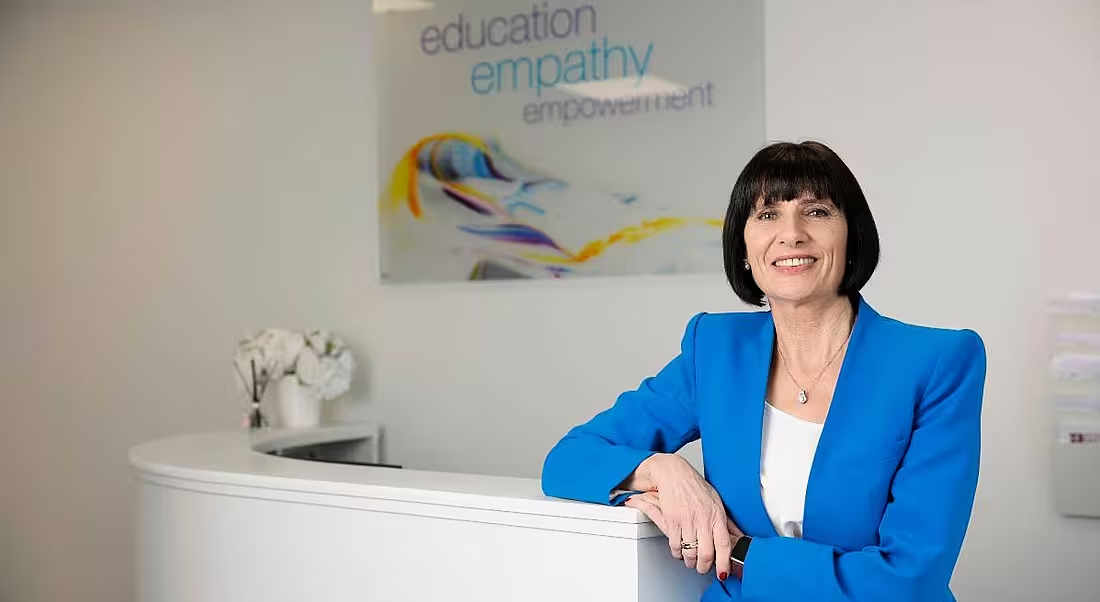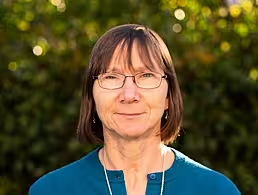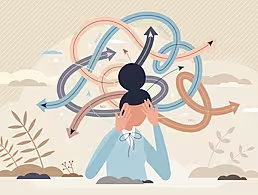Women’s sexual and reproductive health, though no longer consigned to the shadows, still comes with an element of secrecy and in 2024 this is simply ridiculous.
Historically, the issue of women’s health has been disregarded and undermined, in comparison to how male health concerns are perceived. Even now in 2024, despite the fact that women tend to live longer than men, the World Economic Forum report shows that women spend 25pc more of their lives experiencing poor health.
As the survey notes, the gap is largely created by a lower investment in women-specific conditions, significant gender-based barriers to care and a systematic underestimation of health burdens that can lead to datasets that are missing relevant information.
But perhaps the most important area to look at is how science is applied to the topic of women’s health. According to the survey, the study of human biology defaults to the male body, which can hinder the understanding of sex-based biological differences, resulting in fewer and less effective treatments for women.
When Loretta Dignam – the founder and CEO of The Menopause Hub and Menopause Hub Academy – turned 49, she was completely blindsided by the onset of symptoms. “I knew nothing, or very little, about the menopause and had never even heard the word perimenopause,” she explains.
“I found the experience to be isolating, challenging and difficult to navigate. It was secret and taboo.”
The final taboo
The symptoms of menopause and perimenopause are individual to each woman, but can often be irritating and even debilitating. For example, some people can experience mood changes, irregular body temperature, a change in skin and hair, and problems sleeping.
When Dignam sought treatment for the symptoms she was having, she says she felt like a new woman and realised that her experiences of isolation and confusion may not be unique to her. “I felt compelled to act to help women manage their menopause and I opened a dedicated menopause clinic in Dublin in December 2018. Now we have three clinics, two in Dublin (northside and southside) and one in Cork.”
In her opinion, menopause is one of the last remaining taboos for women, professionally and personally, as it has “been shrouded in secrecy and shame and not spoken about in society or in the workplace, in a mature way that would help normalise the conversation”.
“Women’s health has been neglected across society and in the medical sphere for such a long time, resulting in its neglect in the workplace too. However, this is changing for the better,” she explains, and for a number of reasons.
Firstly, societal circumstances have changed. “Only 50 years ago women had to give up work when they got married,” she says – which was true for women who were members of the civil service until 1973 – but nowadays there are more women in the workforce who are vocal and present.
“Secondly, the battle for talent means that employers need to focus more on gender equity, the gender pay gap, diversity and inclusion and workplace wellbeing if they are to enhance their employer value proposition and retain and attract the best talent.”
Lastly, Dignam credits the rise of social media with giving women a platform to share their own experiences and narratives, opening up the often difficult topic of women’s physical, reproductive and mental health, for everyone.
“Periods, endometriosis, fertility issues, pregnancy loss, adoption, surrogacy and menopause are no longer shrouded in secrecy, in society or in the workplace as they once were. My generation is the last to put up with the menopause taboo. Younger generations are speaking out about their issues and challenges in an attempt to normalise it and about time, too,” says Dignam.
‘Tone comes from the top’
Everyone can be accommodated
Rather than sticking your head in the sand, Dignam explains, progress demands that collectively people open up and offer reasonable accommodations and adjustments to those impacted, putting policies in place to drive a consistent and more uniform approach across an organisation.
“Many already offer flexible working hours, hybrid working, employee assistance programmes and occupational health support, they just need to be framed through the lens of women’s health and explicitly communicated about in terms of period health, menopause and other conditions, in a similar way to pregnancy.”
From an employer’s perspective, reasonable accommodations also safeguard against accusations of inequality, as according to Dignam, “there has been a triple-fold increase in the number of menopause-related employment tribunal cases that have been taken by menopausal women in the UK, where they have won on the grounds of age, gender and disability discrimination”.
There is a shared responsibility in ensuring that within the workforce, the topic of women’s health is approached professionally. For Dignam, “tone comes from the top”, and if senior leaders are shown to embrace their own experiences, it can compel other employees to do the same.
“Together, we can all drive the cultural change and normalisation that is required. I am a firm believer that you cannot drive and manage change unless you can measure it, so employee engagement surveys, pulse surveys, bespoke topic surveys can measure the baseline and can be tracked over time, as can soliciting lived-experience feedback,” says Dignam.
Parting advice
She also notes the importance of making informed decisions that you are comfortable with, as menopause is a popular topic of late, meaning people and businesses are hopping on the bandwagon and there is a lot of ‘meno-washing’ going on with vulnerable women being taken advantage of.
“So I would advise women to research any new products, especially some of the supplements and the saliva, urine and unnecessary blood tests that are popping up on the market. Evidence-based international guidelines advise that they are often of no value to women and are a waste of money.”
“My mission and vision is to change the lives of peri/menopausal women for the better, whether that is personally or professionally,” she says. “Knowing that I can contribute to that is so rewarding. I also want to see better gender balance and a more diverse and inclusive workplace.
“The journey has begun but we all have a lot more to do. Ireland and the UK are leading the way globally in smashing the menopause taboo. I want to contribute to other countries and cultures doing likewise.”
Find out how emerging tech trends are transforming tomorrow with our new podcast, Future Human: The Series. Listen now on Spotify, on Apple or wherever you get your podcasts.




